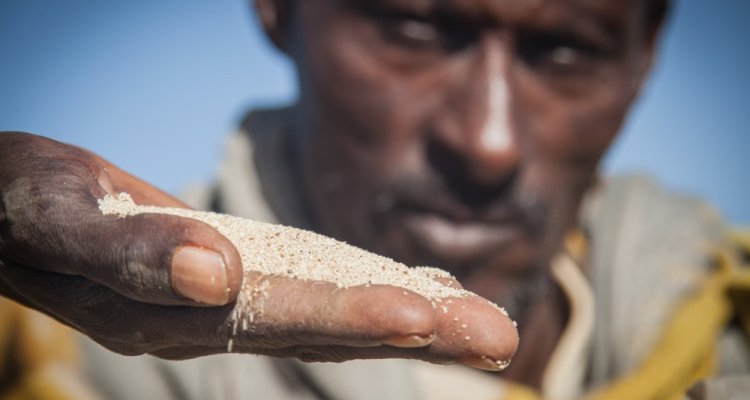
Impact story
Better seeds for more food in Africa
1 in 10 people worldwide have too little to eat. Access to quality seed ensures food security, higher yields, and better living conditions for local farmers. Wageningen scientists work with local farmers, businesses, NGOs, governments, and research institutes towards structural improvements in the African seed sector, prompting positive change.
Farmers in African nations are often sold bad or fake seed. This is one of the reasons their yields are lower than they could be. Low-quality seeds and plant varieties are responsible for at least 50% lower yields, resulting in tens of millions of euros in losses.
Several fronts
Wageningen University & Research collaborates with businesses, NGOs, governments, research institutes and farmers' organisations to structurally improve the seed sector. This challenge calls for multiple approaches, including educating farmers, introducing quality controls and governance, research and implementation of technical innovations, and better coordination in the chain between seed breeders, farmers, and other partners. Between the development of a new seed variety and the farmer's use of that variety, many parties are involved - each with their own expertise and interests.
The sector must address a range of issues: formulating a proper future perspective for the sector; developing crops and varieties that are drought-resistant and resilient against diseases, plagues, and other consequences of climate change; and establishing fair market prices.
Strategy development
Developing a shared vision and strategy for the seed sector was the strategic starting point. At the request of the Nigerian government, WUR and Nigerian partners worked on a 'National Seed Road Map', a document to help policymakers and companies strengthen the sector in a coordinated and structured way. Then, Dutch organisations able to contribute the knowledge and expertise required were identified. This resulted in a Dutch-funded seed programme coordinated by WUR.
Based on this programme, and similar experiences in Ethiopia, Uganda, Mali, and Niger, Wageningen scientists decided to create a guide for developing national seed road maps.
In Nigeria, WUR is working with researchers, businesses, and farmers to find out what is holding back the use of improved seeds, varieties, and cultivation methods of vegetable crops. New approaches are being tested to speed up registration and admission of new varieties to the market and to strengthen the capacity of local companies to promote new varieties.
The partners are making significant inroads through national Integrated Seed Sector Development (ISSD) projects in Ethiopia and Uganda and working towards an international collaboration with twelve sub-Saharan African nations. Thanks to their efforts in Ethiopia, more than four million households acquired quality seeds. ISSD projects have tested 343 varieties of twenty different crops among 15,000 farmers – half of whom are women This has increased local food production and food security and given many households access to plant varieties adapted to the changing climate.
In an Africa-wide, international programme, WUR and its partners are working on specific research themes. For example, they are researching the effectiveness of seed policies, the genetic diversity of seed stocks considering climate change, and access to seeds in emergencies such as conflict and war.
Impact evaluations showed that the farmers’ living conditions significantly improved when using quality seeds. The extra income generated allowed them to build better homes or pay for their children’s schooling. Want to learn more about how WUR can play a key part in collaboration for societal impact? Contact us!
- Unfortunately, your cookie settings do not allow videos to be displayed. - check your settings